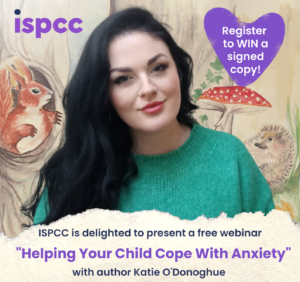
A recent survey by Vodafone Ireland uncovered one of the deepest fears of parents.
8 out of 10 of those questioned said that they were anxious that their child could meet a stranger online.
‘Stranger danger’ has always been a worry for parents, and it is particularly acute today when many of our youngsters spend so much time online. According to the same survey, 62% of children devote one to three hours online each day.
John Church, CEO of the ISPCC, pointed out: “Technology and the internet are almost fully embedded in our children’s lives today. It’s important that children and young people, with the support of their parents and caregivers, talk about the best way to ensure that they are safe online.
“This interaction could involve conversations about managing the type of content they engage with and setting time limits for internet access.”
How will you know if your child is at risk?
It’s a good idea to know the type of content your child is viewing and how long they are doing it for. Some experts suggest following your children on social media.
If their account is private and you don’t believe they will ‘accept’ you as a follower, you can always set up a fake account to monitor their activity or ask a family member to keep you informed.
Good communication between you and your child is essential. Your child needs to understand why you have put rules and boundaries in place. To know that they’re not there to limit their fun, but that you simply want to keep them safe.
What signs should you look out for?
Dr Sharon Cooper from the University of North Carolina is an expert on sexual exploitation and says that the two key indicators that your child has met a predatory stranger are:
1) spending too much time online
2) angry reactions when parents want them to stop.
It’s imperative to remember that teenagers don’t necessarily recognise unacceptable behaviour and often tolerate things that should be challenged.
They need to be taught how to judge what’s okay and what’s not okay.
What can you do?
Talk through various scenarios with your child and work out strategies that they can use to stay safe.
Impress upon them that they deserve consideration and respect too.
Empower with the confidence and resilience to stand up for themselves and know that they don’t have to do anything they don’t want to.
Teach them to trust their gut instinct if they feel something is wrong and let them know that they can talk to you if they feel uncomfortable about anything they see or read online.
It’s about finding the balance between helping your child grow into an independent, thoughtful adult and showing enough interest in what they are doing so they grow up knowing that they are loved and protected.
They must know that they can come to you about anything that worries them and that when they do, you won’t judge or blame them for what has happened.


